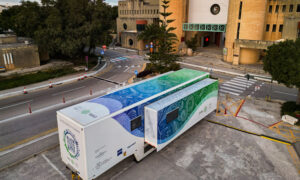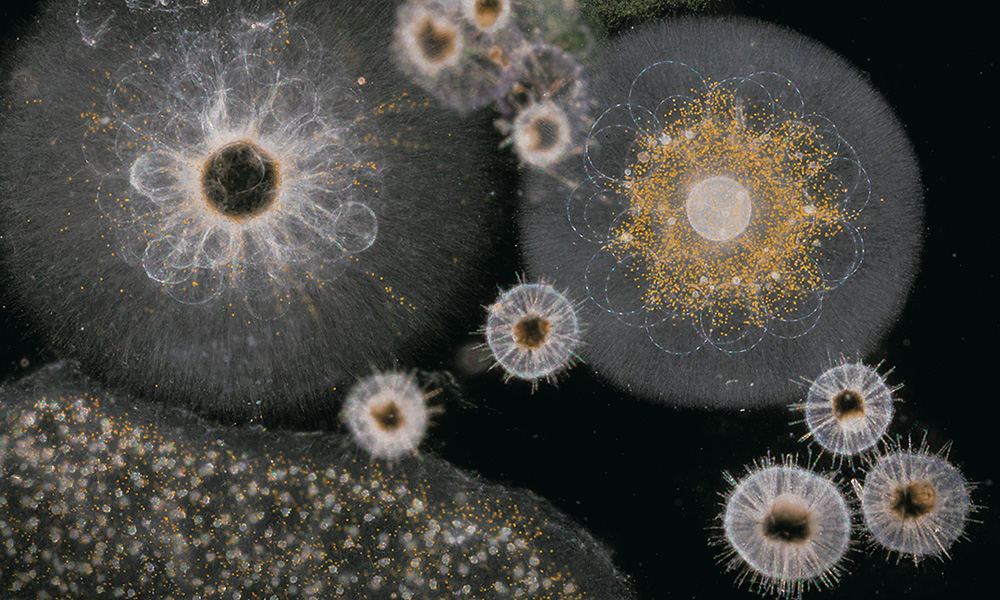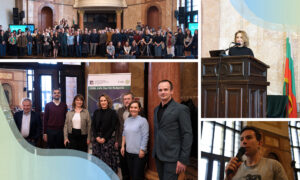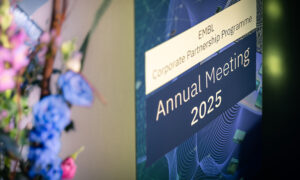
Microbiomes help predict the future of the Atlantic
The world’s oceans are facing a worrying suite of threats caused by humans. Marine ecosystems are changing faster than ever before, as a result of overfishing, pollution, and global warming. These silent shifts have profound impacts on animals and people everywhere, so understanding them is crucial.

AtlantECO – mapping the ocean’s microbiome
A new and ambitious project, AtlantECO, brings together 36 organisations, including EMBL’s European Bioinformatics Institute (EMBL-EBI), in the quest to explore the Atlantic Ocean from pole to pole. The project, funded by the European Union, will map new and existing knowledge about the microscopic organisms that inhabit rivers, coastal waters, the open ocean, marine sediments, and the atmosphere. The study will also analyse microbes found on plastic litter, which is now a part of all these environments.
Microbiomes support life on Earth and are key to understanding marine ecosystems. Inspired by medical research that combines next-generation genetic, imaging, and environmental approaches, AtlantECO will develop diagnostic tools and metrics to assess and predict changes in the health of the Atlantic Ocean.
Cutting-edge explorers
Researchers will conduct fieldwork on board national oceanographic vessels and specialised sailing boats. Stopovers will be organised with local communities around the Atlantic basin, engaging in outreach, citizen science, and awareness campaigns, delivering a wide-ranging capacity-building programme for professionals, students, and young people.
AtlantECO will determine how marine regions and their ecosystems are connected across the Atlantic Ocean. It will do this by developing models that account for dynamic processes such as large river plumes and ocean circulation. These models will help predict the migration of species, the ability of the ocean to capture and store carbon dioxide, the transport of pollutants and hazards, and the balance between ecosystem health and human activities.
Navigating the data
“The colossal amount of data generated will be curated and openly shared with the international scientific community, allowing researchers everywhere to build their own analysis and modelling tools,” explains Guy Cochrane, Team Leader, Data Coordination and Archiving at EMBL-EBI. “This kind of international and interdisciplinary work will help us understand the impact human activity has on oceans.”
“EMBL-EBI will help to ensure that suitable data standards and best practices are used across AtlantECO’s impressive range of activities. These data will be crucial for new discoveries, so they must be reliable and easily accessible,” continues Cochrane.
“Alongside data management, EMBL-EBI will also play an important analysis role,” says Lorna Richardson, Microbiome Resources Co-ordinator at EMBL-EBI. “Using our cutting-edge tools, we’ll assemble a large number of omics datasets and analyse them in a coherent way using our MGnify system. This will also enable biodiscovery and the dissemination of genomic data to more specialised biodiversity portals, thus enabling further discoveries.”
“The open data from the project will also link to other initiatives, such as Tara Oceans and a number of European Research Council-funded studies,” adds Peer Bork, Director of EMBL’s Heidelberg Scientific Activities. “Together, these innovative projects will contribute to better understanding our planet’s microbiome.”
Filling in the gaps
This huge scientific effort echoes the Belém Statement, co-signed in July 2017 by the European Union, Brazil, and South Africa, which aims to fill knowledge gaps between the widely studied North Atlantic and the under-studied South Atlantic regions.
Five case studies co-developed with local stakeholders around the Atlantic basin will demonstrate the value of AtlantECO’s results for society and for the blue economy: a concept that refers to the sustainable use of ocean resources for economic growth, improved livelihoods, and ocean health. The case studies will address the early detection of harmful threats in aquaculture sites, the impact on microbiomes and coastal ecosystems of mining off the coast of southern Africa, the impacts of climate change on fisheries value chains, the response of microbiomes to offshore drilling, and the impact of fossil fuel extraction off the coast of Brazil.
This post was originally published on EMBL-EBI News.


